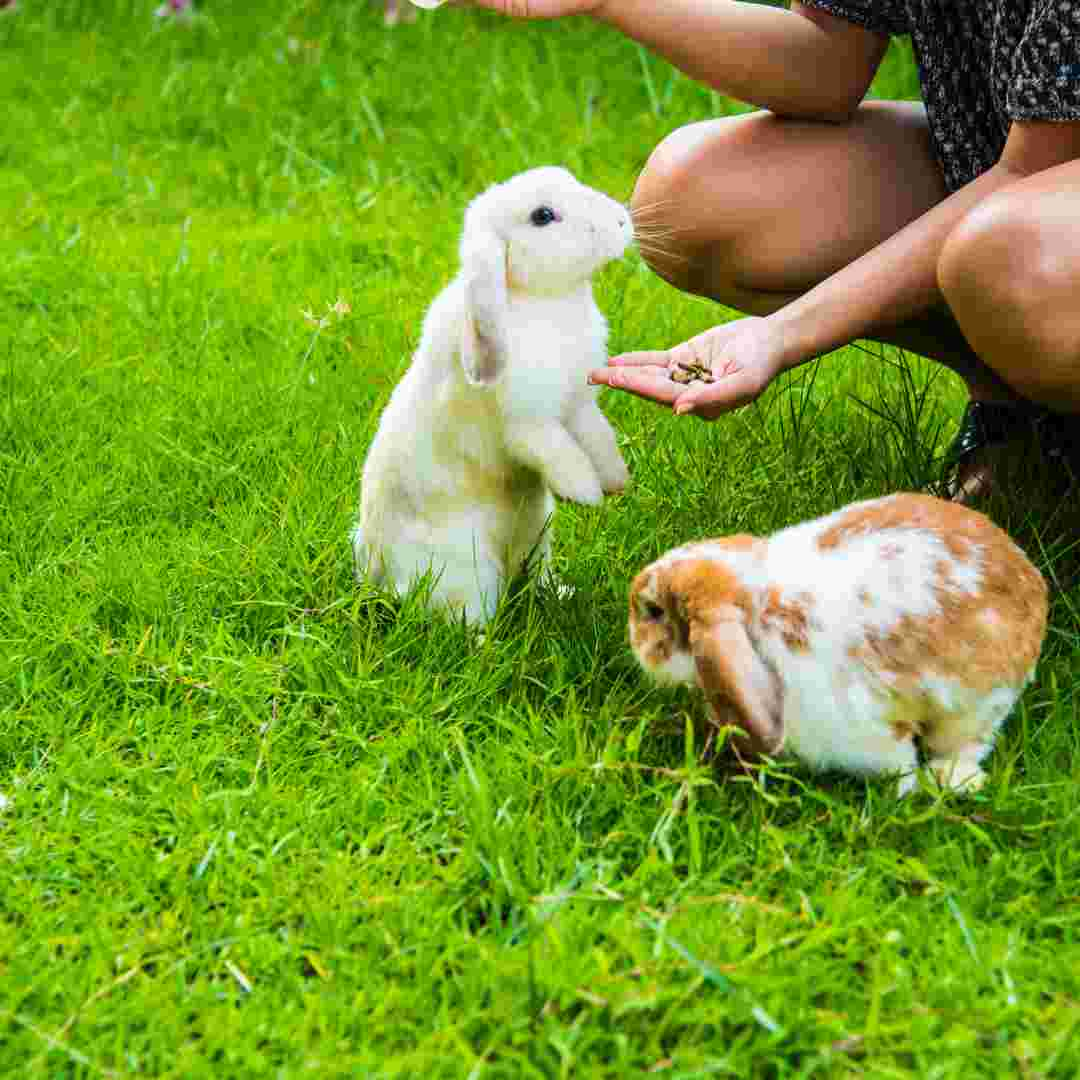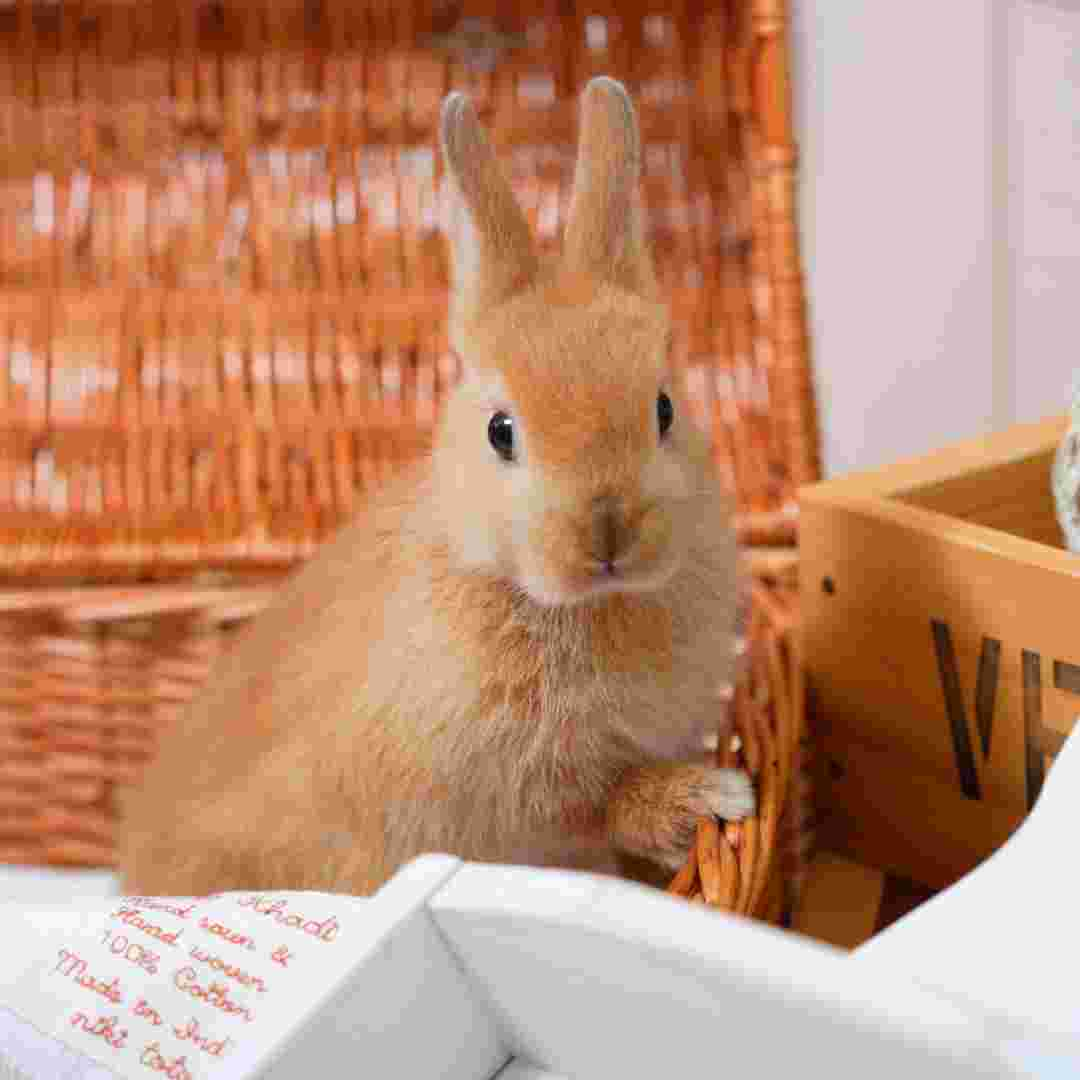Contents Table
Introduction
Criteria for Rabbit Feed
Benefits of a Balanced Rabbit Diet
Making Rabbit Feed at Home
Pelleted Rabbit Feed Pros and Cons
Avoid these rabbit feeding mistakes
Q&A
Conclusion
Introduction
Introduction
Rabbit feed is rabbit-specific. Hay, fresh vegetables, and pellets provide good nutrition. Rabbit feed contains vitamins and minerals needed for growth and development, making it crucial for a balanced diet. Rabbit feed gives your rabbit energy and strengthens their teeth.
Criteria for Rabbit Feed
Consider your rabbit's nutritional needs while choosing feed. Rabbits need a high-fiber, low-fat diet. Rabbit-specific diet is also vital because alternative feeds may not deliver enough nutrients.
Choose a vitamin- and mineral-fortified feed. This will guarantee your rabbit gets enough nutrition to stay healthy. Choose a feed without artificial colours, flavours, or preservatives. These compounds can harm rabbits.
Also examine the feed kind you buy. Pellets are the most prevalent feed and come in many sizes and formulas. Rabbits should also eat hay. Dust and mould can hurt your rabbit, so choose hay without these.
Finally, consider feed cost. Maintaining a healthy diet for your rabbit while staying under budget is crucial. Find rabbit feeds that are affordable and nutritious.
Think about these elements to feed your rabbit the best.
Benefits of a Balanced Rabbit Diet
Unique and fascinating rabbits need a balanced diet to keep healthy and happy. Hay, fresh veggies, and a few pellets make a nutritious rabbit diet. A balanced diet helps your rabbit's digestion, dental health, and immune system.
Hay is crucial for rabbits and should be their main feeding. Hay's fibre content supports a healthy digestive tract. It also helps wear down rabbit teeth, which can develop if not! Hay contains critical vitamins and minerals for a balanced diet.
Rabbits need fresh vegetables too. Vitamins, minerals, and fibre are abundant in vegetables. They supply critical elements not found in hay. To avoid digestive difficulties, give vegetables in moderation.
Finally, a rabbit should eat some pellets. Pellets provide concentrated nutrients and should be administered in modest doses. They should not dominate a rabbit's diet because they can cause obesity and other health problems.
Balancing your rabbit's diet offers various benefits. A balanced meal improves digestion because hay and vegetable fibre keeps the digestive system working. Hay also wears down rabbit teeth, keeping them healthy. Hay and vegetables contain vitamins and minerals that boost the rabbit's immune system.
In conclusion, rabbits need a balanced diet to stay healthy and happy. Hay, fresh veggies, plus a few pellets make a healthy meal. This boosts immunity, digestion, and tooth health in rabbits.
Making Rabbit Feed at Home
Make your own rabbit feed to provide your pet the optimum nutrients. This is a cheap method to feed your rabbit a balanced diet. You can feed your rabbit a nutritious diet with a few basic ingredients.
First, gather the ingredients. The base of your feed should be high-quality timothy or oat hay. Fresh veggies like carrots, celery, and kale are also needed. You'll also need protein like beans, eggs, or meat. Finally, you need calcium, either via broken eggshells or a supplement.
After gathering the components, build your feed. Mix hay and veggies in a big bowl. Then add protein and calcium. Disperse everything evenly.
Store combined feed in an airtight container in the fridge. This will keep feed fresh and prevent spoilage. You can freeze feed in portions for easier feeding.
Scoop the right amount of grain into your rabbit's bowl to feed him. Give your rabbit plenty of fresh water.
Making your own rabbit feed ensures your pet gets the optimum nutrients. You can feed your rabbit a nutritious diet with a few basic ingredients.
Pelleted Rabbit Feed Pros and Cons
Many rabbit owners prefer pelleted rabbit feed because it is convenient and nutritious. Whether to feed your rabbit pelleted feed has benefits and cons.
Pros
Nutritional balance is a major benefit of pelleted rabbit feed. Pelleted feed gives rabbits all the vitamins and minerals they require. No need to add vitamins and minerals to your rabbit's diet.
Easy storage makes pelleted feed convenient. Pellets can last longer than fresh veggies and hay. This makes it ideal for busy bunny owners who can't buy for fresh produce daily.
Cons
Pelletized feed is costly. Though convenient, it costs more than fresh veggies and hay. Pellets may not taste as good as fresh vegetables, which might cause finicky eating in rabbits.
Pelletized feed can be calorie-dense. Without exercise and fresh produce, rabbits can become obese.
Pelletized feed is a good alternative for many rabbit owners. Before choosing, weigh the advantages and downsides. If you feed your rabbit pelleted feed, add fresh veggies and hay to ensure they get enough nutrition.
Avoid these rabbit feeding mistakes
1. Overfeeding: Rabbits' fragile digestive systems can lead to obesity if overfed. Hay, fresh vegetables, and a few pellets should be fed to your rabbit.
2. Feeding the wrong hay: Rabbits should eat mostly hay. Timothy, oat, and meadow hay should be given to your rabbit. Alfalfa hay is high in calories and can cause obesity in rabbits.
3. Giving your rabbit too many treats: Treats should be a minor part of its diet. Too many snacks might cause stomach issues and obesity.
4. Feeding unsafe veggies: Rabbits cannot eat all vegetables. Avoid feeding your rabbit poisonous veggies like onions, garlic, and potatoes.
5. Overeating fruit: Fruits are sugary and should be eaten sparingly. Too much fruit can cause stomach issues and obesity.
6. Feeding the improper pellets: Rabbits should eat a little amount of pellets. Sugary or flavoured rabbit pellets should be avoided.
7. Not offering fresh water: Always give your rabbit clean water. Change the water everyday and keep the dish shallow because rabbits can drown.
8. Not enriching rabbits enough: Healthy and happy rabbits need enrichment. To engage your rabbit, give them toys, tunnels, and more.

Q&A
1. What should my rabbit eat?
A: Rabbits should eat hay, fresh veggies, and a little pellets.
2. How much hay should my rabbit eat?
A: Hay, like timothy, is essential to rabbits' diets and should be available at all times.
3. What vegetables should my rabbit eat?
A: Rabbits can eat carrots, broccoli, kale, and spinach.
4. What things should I avoid giving my rabbit?
A: Avoid giving your rabbit sugary or fatty fruits, nuts, and seeds.
5. How often should I feed my rabbit?
A: Feed your rabbit in the morning and evening.
Conclusion
is
Finally, rabbit feed is vital to their nutrition and should be properly selected. It needs rabbit-specific pellets, fresh veggies, and hay. Your rabbit needs a balanced diet to keep healthy and happy.
